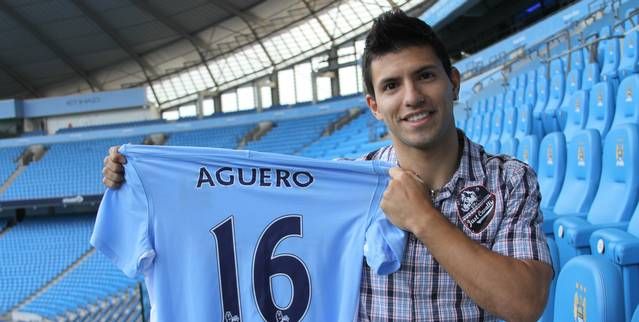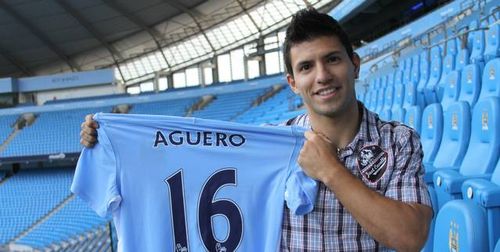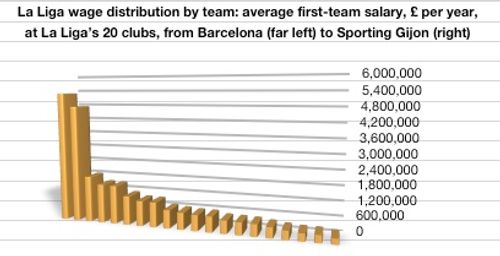
Football: Where are we heading?!
Human beings as a species are the embodiment of chaos. I see the doubtful grimaces, but just ask any historian or anthropologist and they’ll tell you the same. History is littered with examples. I’m not referring to wars, terrorism or despicable acts of wanton violence. I’m talking about something far simpler in nature. Human beings are the only intelligent species on earth but in an act of comic irony, evolution took away a few basic aspects away from us: Put simply, we don’t know when to stop. We go on trouncing the horse until it is dead and then realize our folly only when it is too late. There has almost never been an instance in history wherein humans have tried to limit a harmful habit. Or as a physicist would say, we always cross the event horizon before realizing it’s too late; be it global warming, pollution, proliferation of technology or the over-reliance on modern medicine.
Unfortunately, we have approached the beautiful game in much the same way; our craving to see better players in action along with unrestricted greed has done immeasurable damage to the football world. Not that it is unreasonable to want to watch more talented players on the green but a line should have been drawn somewhere. Our over-consumerist natures have put the bulk of resources in the hands of a chosen few who have put a few light years between themselves and the other competitors.

The current scenario in football epitomizes the capitalist thought process. It is a free market wherein equity can come from pretty much anywhere, no questions asked *cough* Manchester City *cough* PSG, and the regulatory bodies play into the hands of a successful few by dropping all the money in the market into their laps ala the Spanish first division.
In most countries, the parity in football was forever destroyed during the period between the late 80s and the early 2000s. Unsurprisingly, it coincided with the time of rapid industrial and technological growth. There was a spread of rabid consumerism and also the rise of capitalism and the growth of the ‘credit card lifestyle’ which involved living one’s life entirely on someone else’s money. It was a time when the American thought process started to spread the world over and more countries in Asia unlocked their economies, while those in Europe started to spend recklessly on that golden toilet brush that they had always wanted. In other words, the rewards for winning were huge. A little too huge for healthy competition though; the winner’s cheque and the giant trophy did not cause the financial imbalance. But the best sponsorship deals and partnerships that came with being a victor did the trick.
A closer look at world football will merely confirm my theory, as the clubs that dominated in that era are today’s superpowers.
Still not convinced? Take my hand (not really, unless your Jessica Alba) and lets take a stroll down memory lane.
The English Premier League of the aforementioned era was dominated by Manchester United, with Arsenal and Liverpool in tow. Interestingly, two of those teams are still dominating the league, while Liverpool are still a force to reckon with even though they are no longer in contention for the league (calm down gentlemen, it’s just a fact!) . The rise of the Blues (both dark and light) has skewed the dominance of the other three only because they were bank rolled by eccentric billionaires. The other three teams (funnily enough, they are all traditionally clad in red) have won silverware almost continuously, be it the league title, the FA Cup or the League Cup. Though Liverpool covered themselves in the least glory among the lot, their dominance during the previous decades ensured their star status.
The Spanish first division too was dominated by the likes of Barcelona and Real Madrid, who split all the league trophies between themselves with the exception of the 1990-00 season, which was won by Deportivo La Coruña!
The Italian Serie A too tells a similar story of a duopoly of Milan and Juventus. Interzionale ushered in a period of sustained dominance during the mid and late 2000s but one cannot discount the contribution of their generous owners.
On German shores, the club from Munich ruled supreme during this period with stints of dominance from Borussia Dortmund. Werder Bremen, Kaiserslautern & Stuttgart won the league title a few times but lacked any sort of sustained performance, eventually steam rolling into mediocrity thanks to the leviathans from Munich.
Most will argue that most of the aforementioned teams dominated their respective leagues far before the late eighties and true it is, but it was during this period that the success of these teams enabled them to build up their financial muscle and become behemoths. Success in football prior to the eighties was achieved by sound footballing principles of good coaching, investment in youth academies and scouts, and smart overall management of the club. Even though certain clubs may have won their titles numerous times before our control period, there existed a certain level of financial parity which ensured that wage bills, transfer funds and other expenses between a club at the top of its league and a competing club at the bottom of the very same league were different but difference remained well within reason. In the present era of corporate sponsorships and sugar daddies, the difference in the very same parameters is astronomical. The graphs compiled by www.sportsintelligence.com are ample proof of the disparity that exists within leagues in terms of finance.

La Liga Wage distribution (Sourced from www.Sportsintelligence.com ; all credit goes to them)
This disturbing trend will turn every league to a monopoly or a duopoly, with a few teams dominating through the year. Most leagues are already at a position wherein there are only a few possible winners and every other club in the league are turned into glorified punching bags. The La Liga is the final stage of this grotesque financial evolution wherein barely a dozen matches over the year are not mind-numbingly boring.
What can be done about it?
Ideally I’d say that football fans should unite and force the FAs of the world and the UEFA to take drastic steps to bring a measure of economic equality into the game. But I’m quite certain that hell would freeze over and the devil would prance around Wall Street in a tutu before fans unite over a single issue, even one with such major consequences. But in the highly unlikely event that this happens, the first step would be to take away the “TV money” from the “big” clubs and redistribute it among clubs that are in sore need of it. Again, there will be much outrage if this ever came to pass, and many would argue that a majority of fans (from a minority of clubs) tune in to watch their clubs play and not the rest of the minnows. But to all them I ask: “What’s the fun in watching your club win every game six goals to nil?”
The second step would be to tighten the regulations of the FFP (Financial Fair Play) to ensure that all possible loop holes are eliminated (read the Etihad Stadium naming rights incident), and the final step would be to pass a set of draconian laws that ensures that salary caps are levied on every club in Europe, linking their net wage bill to profitability and the net turnover. Avarice is not healthy and encouraging such blatant greed among both players and administrators in the sports world is far from the right way to go.
We can only hope that the rot can be stopped before it is too late, and we are tied to the inevitable eventuality of every football fan in the world supporting one of the fifteen or so elite teams of Europe. That would truly be the death of football.